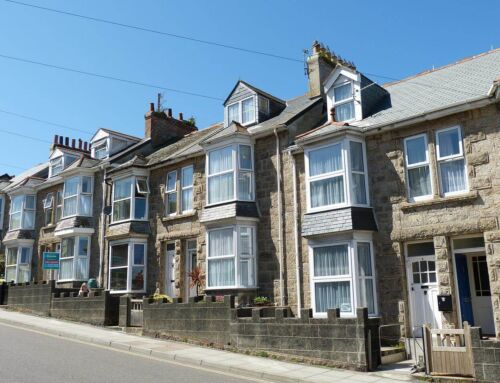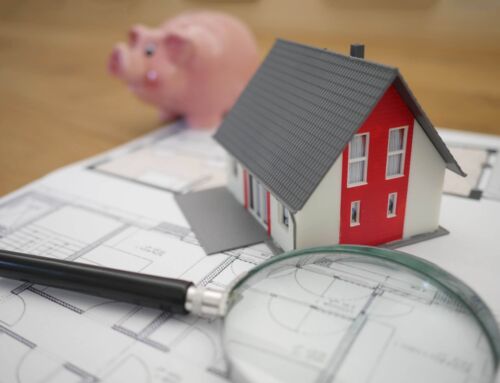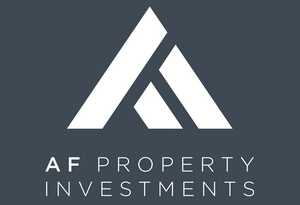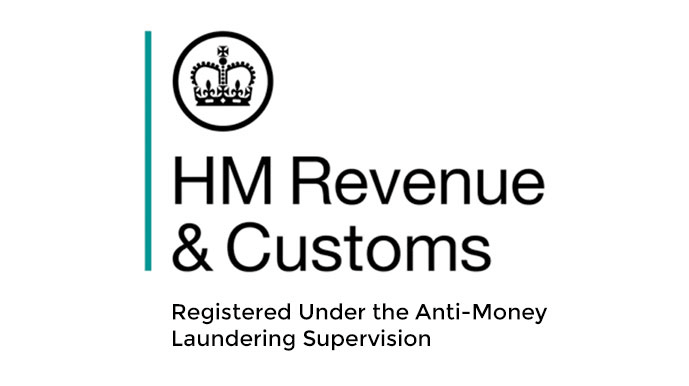Investing in property is an increasingly popular source of income in the UK – and more people than ever are turning to property investments as an alternative source of income rather than a typical 9 to 5.
Property investment has many benefits, and anyone can become a property investor with the right information.
So, what do you need to know before getting started with property investment in the UK?
Why Invest in Property?
First off, let’s start with the why.
Before you even decide whether property investment is suitable for you and how to get started investing, you need to know why property investment is a solid financial choice.
The benefits of property investing are numerous; with carefully chosen assets, you can grow your wealth and enjoy a stable cash flow.
Capital Growth
Capital growth or capital appreciation, as it’s also known, is simply the value by which your property has increased since you purchased it.
However, you can also experience negative capital growth, where your property value is lower than your original purchase price, known as depreciation.
Looking at the current UK property market in 2022, the UK average house prices increased by 9.6% in 2021, with no signs of slowing down in the years to come. You can even achieve greater capital growth with strategic and well-researched investments.
Capital growth is how much your property has increased in value since you originally purchased it. It’s shown as a percentage; for example, if your house value grows from £200,000 to £220,000, your capital gains would be £20,000 or, as a percentage, 10% capital gains.
Rental Yields
Rental yield is a good indicator of a potential investment property’s profitability.
Rental yield is the amount of rent you receive for a house throughout a year as a percentage of the total money you paid for the property.
The higher the percentage value, the better the return on your investment.
- Take your property's yearly rental income.
- Take your property's purchase price.
- Divide the yearly rental income by the purchase price.
- Multiply the figure you get by 100 to give you the yield as a percentage.
Cash Flow
A fundamental benefit of property investing is generating a regular monthly cash flow.
In many cases, your cash flow only improves over time as you pay off your mortgage and build up equity in the property.
Diversify Portfolio
Stocks and shares investments are easily accessible, and many people choose to invest this way, but by diversifying your investment portfolio through property investment, you’ve not “put all your eggs in one basket”.
Doing this protects your assets and reduces your overall risk.
Protection Against Inflation
So, now that you know the benefits of property investment, you need to know how to get started with purchasing your first one. Buying any house can be a long process, so you’ll need to be patient, especially with your first one.
Buying Your First Investment Property
So, now that you know the benefits of property investment, you need to know how to get started with purchasing your first one.
Buying any house can be a long process, so you’ll need to be patient, especially with your first one.
So what exactly is involved?
Make Sure You’re Ready to Buy
First off, you need to make sure you’re financially ready for it; whether you’re looking at buying a property with cash or a mortgage, there are other costs that you need to factor in.
Deposit
If you’re looking at getting it to the buy to let property market, you’ll need a minimum deposit of 25% for a buy to let mortgage. For example, if a house costs £80,000, you’ll need a deposit of at least £20,000.
Valuation Fee
Valuation fees will only apply to investors purchasing a house with a mortgage. The mortgage lender will need to assess the property’s value to determine how much they are prepared to lend to you; valuation fees will cost £150+. However, not all lenders will charge depending on the mortgage product.
Surveyor’s Fee
A survey is also a crucial thing to consider when buying any property. While you don’t legally need a survey on the property you are purchasing, it is highly recommended. A survey can help you avoid any expensive and unwanted costs. You may even be able to renegotiate the property’s price if the survey flags up some issues.
Legal Fees
You also need a solicitor or conveyancer to carry out all the legal work when buying and selling a property. Legal fees will typically cost somewhere between £850 and £1,500 (more on solicitors and legal fees later).
Choose a Mortgage Broker/Advisor
Choosing a mortgage advisor is one of the most important decisions you can make when buying a house. An independent mortgage advisor’s job is to find the best mortgage deals on the market, so it’s essential that you choose the right one for the job.
A good mortgage advisor will help you find the best deals, potentially have access to deals that aren’t available on the market, choose the right deals for your circumstances and help you complete any paperwork.
Make an Offer
Once you’ve arranged your mortgage for the property you want to buy, it’s time to make an offer. You’ll need to tell the estate agent.
By law, estate agents have to tell the seller of any offer they receive. If the seller is interested in your offer, it’s time to negotiate and agree on a final sale price.
For additional help with the negotiations, you can appoint a buyer’s agent to negotiate for you.
Instruct a Solicitor
While the lender is looking at your mortgage application, your solicitor will begin the necessary searches. Searches and prices vary based on the property and location.
Searches that you’ll need include:
Local Authority Searches
Local authority searches are to find things such as building control issues, enforcement actions, and nearby road schemes. Prices can range from £50 – £150.
Drainage Searches
Drainage searches check if the property is connected to sewers for approximately £50.
Environmental Searches
Environmental searches make sure that the land around the property isn’t contaminated. Environmental searches are usually around £50.
Where to Invest in Property?
Now that you’ve got a better idea of how property investment works, it’s important to know which towns and cities across the UK to get the best return on your investment.
Manchester
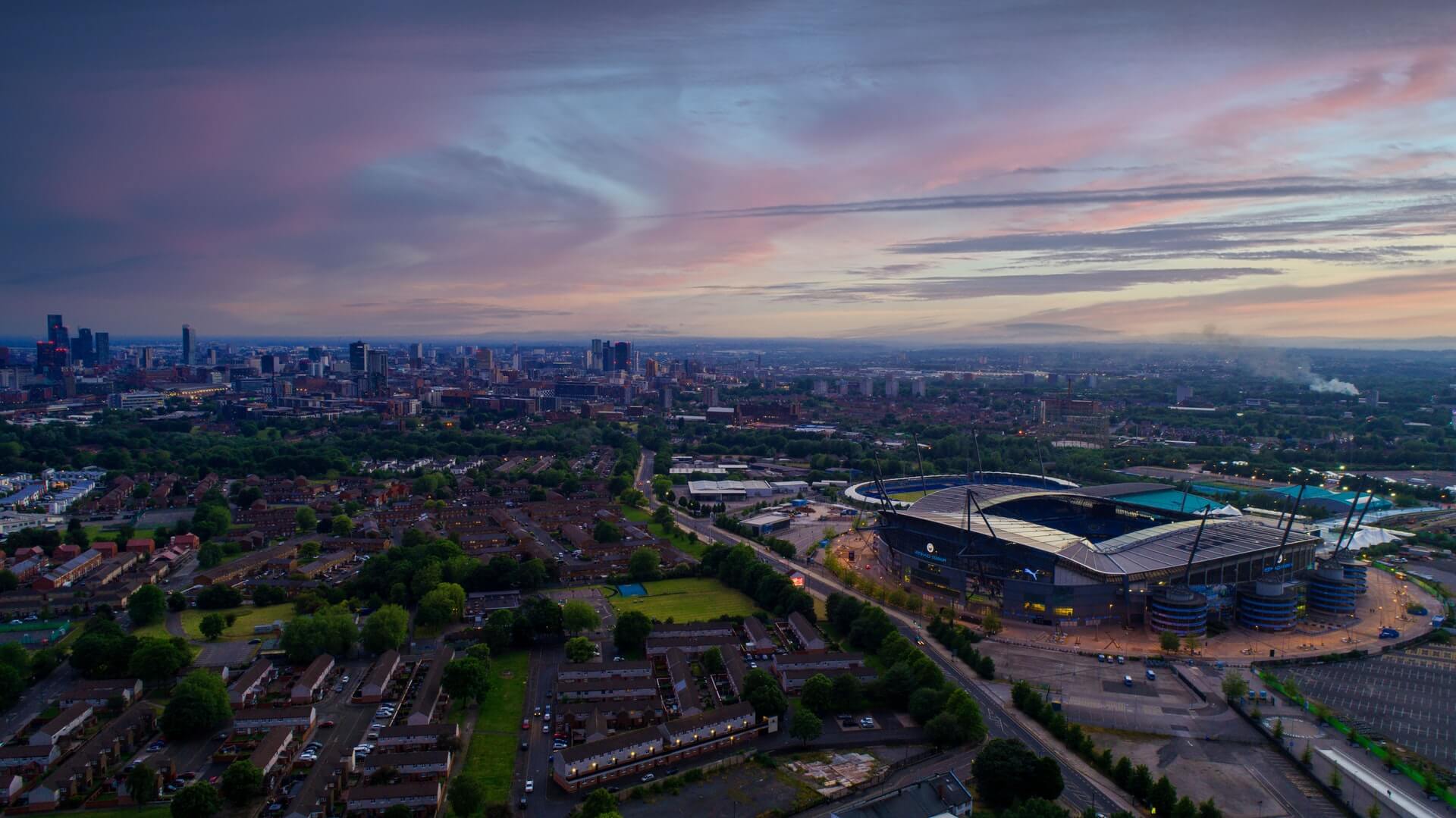
Manchester economically ranks among the highest performing cities not just in the UK but across Europe.
As the centre of the Northern Powerhouse project and increasing housing demand, Manchester is an attractive proposition for any property investor.
For any property investors, buy to let properties in Manchester have seen prices and yields accelerating significantly faster than the UK average.
Off-plan property investment in Manchester offers buyers the potential to make a substantial return on investment and a steady rental income.
Birmingham
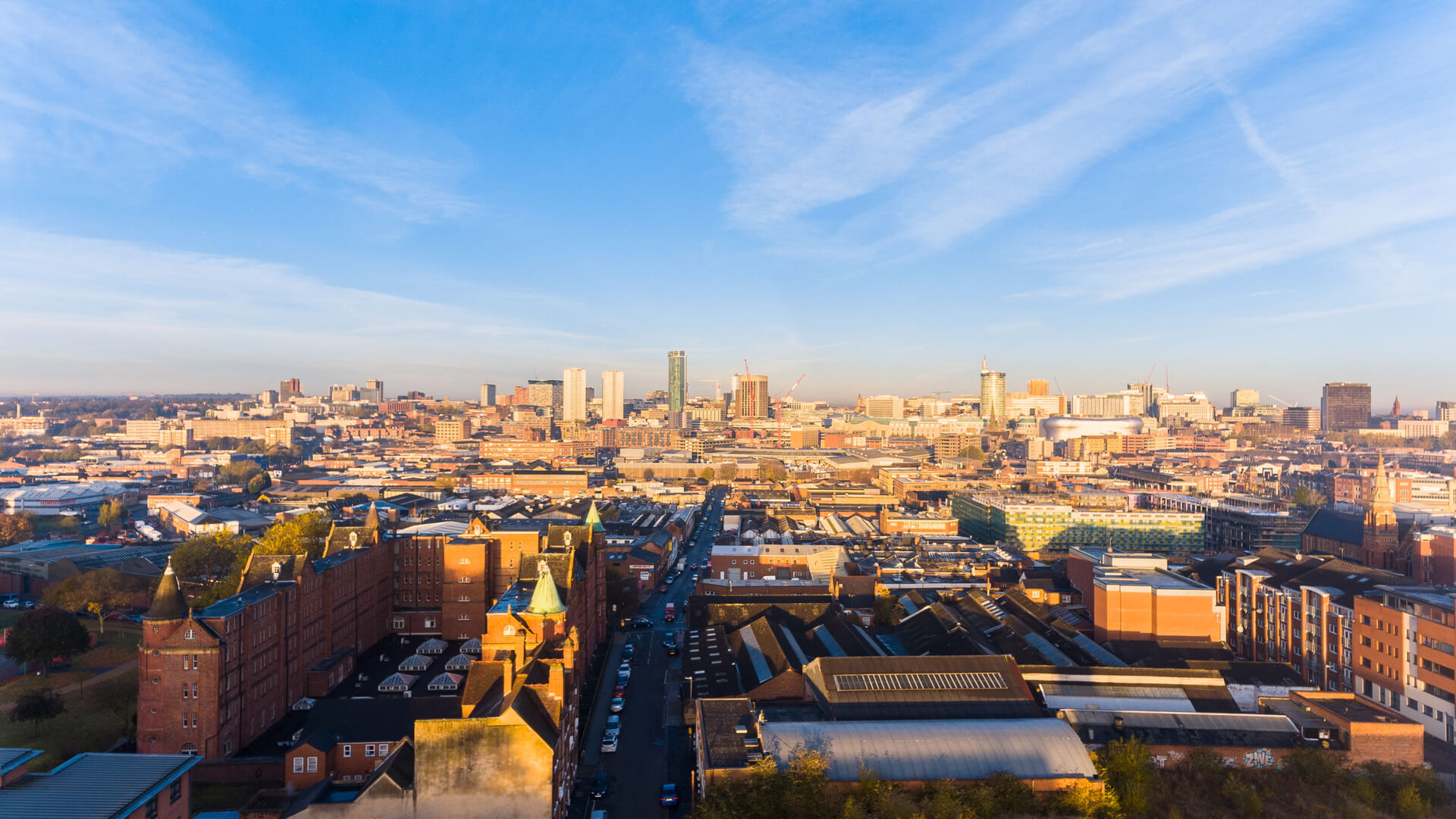
Birmingham has long been known as the UK’s second city. As such an influential and growing city in the UK, Birmingham is ideal for investing in the property market.
With the biggest international companies moving to the city and investment catalysts such as HS2, Birmingham is poised to become a property investment hotspot.
Birmingham’s promise of opportunity and continued development has also drawn over 3,000 tech firms, making Birmingham the largest’ start-up’ centre outside London.
A robust rental market fuelled by a young population, business growth in the city and high demand for rental properties across the city makes for one of the most desirable cities for investing in property, not just in the UK but across the globe.
Capital growth predictions show that property prices in Birmingham will see a 24% growth by 2025. With rental demands expected to increase by 28% over the next few years, Birmingham is an excellent location to start your property investment journey.
Liverpool
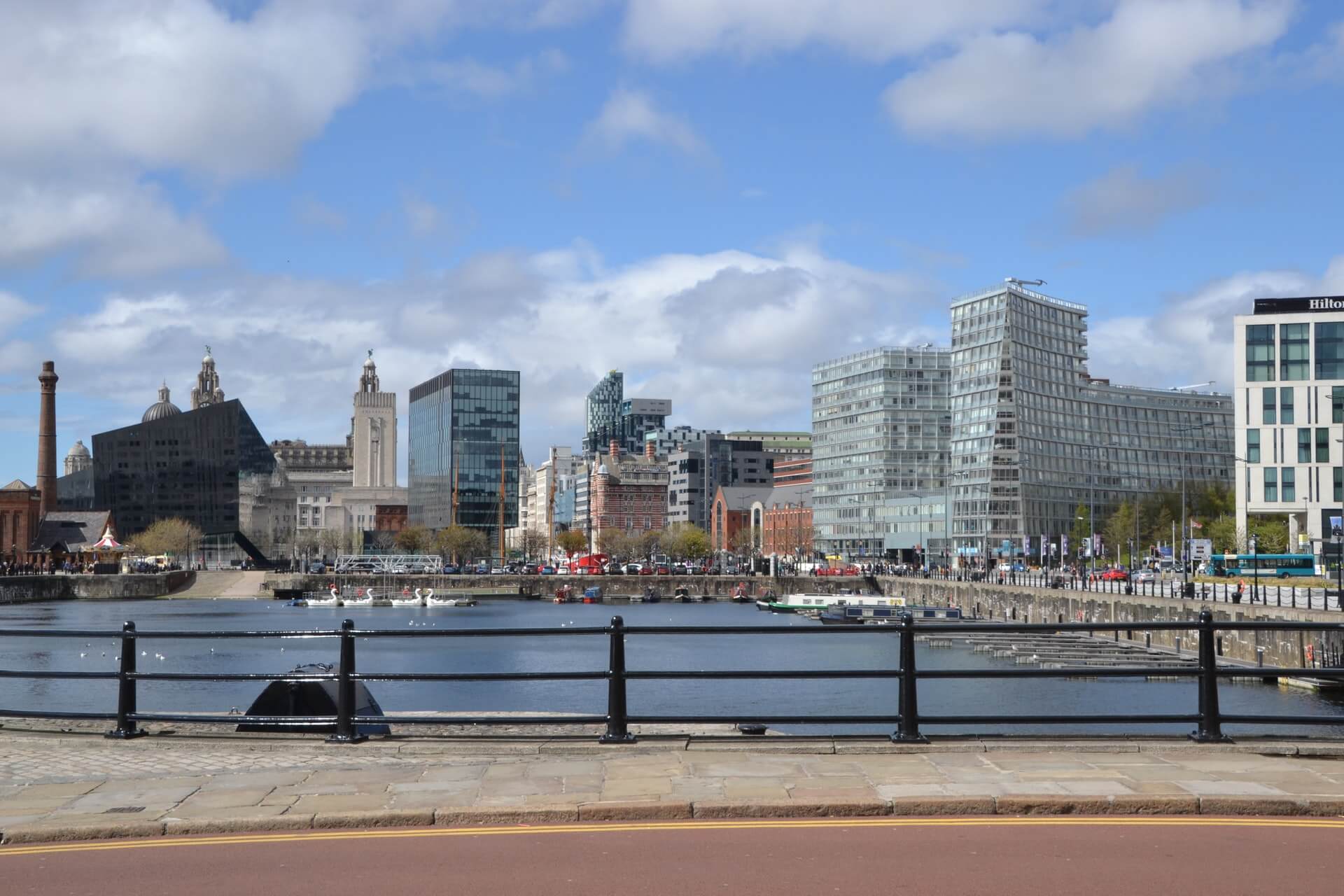
Liverpool is quickly becoming recognised as one of the best property investment cities in the UK due to the lower prices compared to London, Birmingham and Manchester. Affordable house prices and solid rental demands offer investors excellent opportunities for high yielding investments.
Types of Investment Properties
Buy to Let
A buy to let property is a property that an investor has purchased to be rented out to tenants. The incentive of buy to let properties for investors is to make money from the rent paid by their tenant.
Rental income can cover the cost of the monthly mortgage price. Over time, you build up equity in a property without paying the mortgage out of your pocket.
HMO
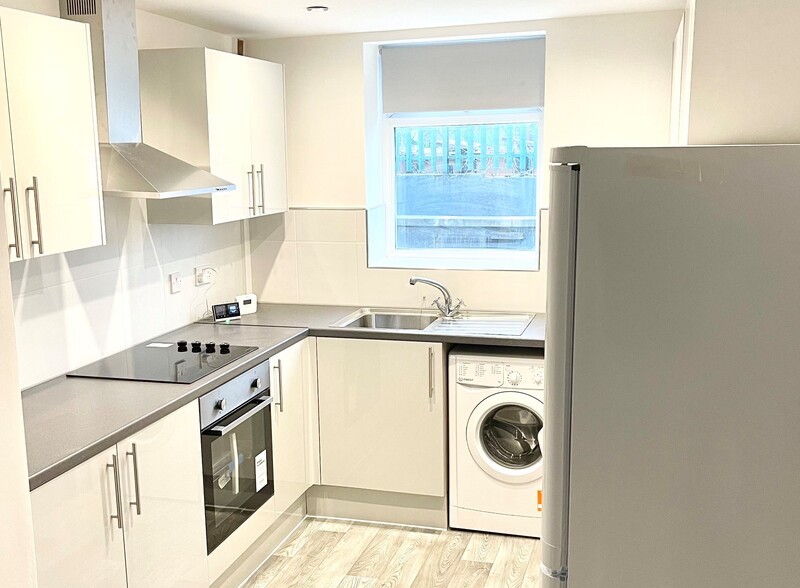
HMO stands for house in multiple occupations. An HMO investment is when a landlord buys a property for a co-living home for multiple tenants.
HMO properties are divided into separate rooms, which are let to individual tenants with communal areas of the property.
HMOs have many benefits, and most importantly, rental yields can be up to 2 or 3 times higher than traditional buy to let properties. Also, void periods have less impact on your cash flow if one of the rooms is untenanted.
Off-Plan Properties

Off-plan property investment is very different from other types of property investments because the development has yet to be built.
This can be pretty daunting to many potential investors because of the wait for the projects to be completed. Still, there are many benefits to investing off-plan.
Off-plan projects usually have the highest potential for capital growth because the initial purchase prices are often much lower to attract investment. Once completed, the value of the property increases significantly.
Short-Term and Holiday Lets
The name may seem self-explanatory, but short-term lets usually have to fall within a specific timeframe. A typical example of short term lets is holiday lets such as Airbnb properties.
As a general rule of thumb, a short-term tenancy is usually any rental property offered for six months or less. Short-lets are typically priced much higher than long-term lets. The average short-term let achieves more than 30% higher returns than if the same property was being let on a long-term tenancy.
Social Housing Properties
Social housing properties are provided by housing associations (not-for-profit organisations) or a local council. These properties are rented out by a housing association or council acting as the landlord.
Social housing investment works by providing a housing association or council with properties that are on government-backed leases with a duration range from 5 to 20 years.
The housing association or council then manage the property for the duration of the lease also, including any maintenance costs.
As the investor, you receive a steady monthly income from the government-backed leases, whether the property has tenants or not. Rental incomes aren’t as high as in the private market, but social housing investments carry a lot less risk.
What to Look for in an Investment Property?
Location, Location, Location!
We’ve all heard the saying “Location, Location, Location!” when it comes to buying a house; an investment property is no different.
Research the area first. Consider the strength of the location, the rental yields in that area, the demand for rental properties, and the potential for capital growth.
It’s also important to look into areas with positive growth projections and a historical record of investment success.
Capital Growth
As we mentioned above, capital growth, or capital appreciation, is the value by which the property goes up over time.
When looking at buying a property for investment purposes, it’s vital to know the potential growth over the short, medium and long term. Then you can decide whether it’s a worthwhile investment.
Rental Yield
When buying for the rental market, the key indicator of a fitting investment property is rental yield.
While it is important to look at the longer-term capital growth, the rental yield needs to be right. A strong rental yield to aim for is between 5% and 8%.
Age of the Property
The property’s age can be essential to consider when buying property.
Typically older properties will require more maintenance and potentially need more expensive renovation work to get them ready for the rental market.
Condition of the Property
The condition of a property can impact how much profit and rental income you can make on a property.
Suppose a property is in poor condition and needs renovation work or an extension. In that case, this will increase your initial investment and therefore lower your rental yield. However, renovation and extensions on a property can significantly increase the property’s resale value.
Private Landlord or Letting Agency?
We’ve all heard the saying “Location, Location, Location!” when it comes to buying a house; an investment property is no different.
Research the area first. Consider the strength of the location, the rental yields in that area, the demand for rental properties, and the potential for capital growth.
It’s also important to look into areas with positive growth projections and a historical record of investment success.
Which is Better: Cash or Mortgage?
The idea of being mortgage-free is the goal for all homeowners. When it comes to investing, it’s slightly different. Paying cash for an investment house means you won’t have any interest to pay on a loan, and much more of your rental income will be profit.
However, even if you have the cash available to pay for a house, it’s not always advisable to tie up a large amount of money.
Tying up your cash to purchase a house could present a challenge in the event of an emergency or if the property requires essential work/maintenance further down the line. It’s much harder to sell a house quickly than it is to pull money out of other investments. Your cash could be tied up for months, even if you desperately need it.
Buying investment properties with a mortgage means you’ll be able to buy more buy-to-let properties sooner than if you opted to buy your first property with cash.
Risks of Property Investment
Now that you know a lot of the basics of property investing, it’s important to understand the risk involved. Like any investment, property investment carries some risk.
However, with careful planning, preparation and thorough research, you can significantly reduce the risk involved in property investment.
Fluctuating Property Prices
It is easy to assume that buying a property and sitting tight will guarantee you a profit with growing property price averages. But things aren’t always that easy.
Back in 2007/2008, with the financial crash, some properties were worth half their original value and still haven’t recovered to their previous high.
Void Periods
Buy to let investments are great when you have tenants in your properties. But you need to consider what will happen if you can’t find a tenant to rent the property for the price you want?
An empty residential property can soon cost you a small fortune rather than being a steady earner.
Tying Your Money Up
As we mentioned earlier, you need to be careful not to over-invest.
Tying up most of your cash into investment properties may seem like an intelligent decision, but if a significant amount of your money is tied up, it will be hard to get back out if you suddenly need those funds.
Ready to Get Started?
Are you ready to get started investing in UK property?
Get in touch with our expert advisors to help you start growing your wealth with the best investment opportunities throughout the UK.
Here at AF Property Investments, we only source the highest yielding investments in the best performing cities.

